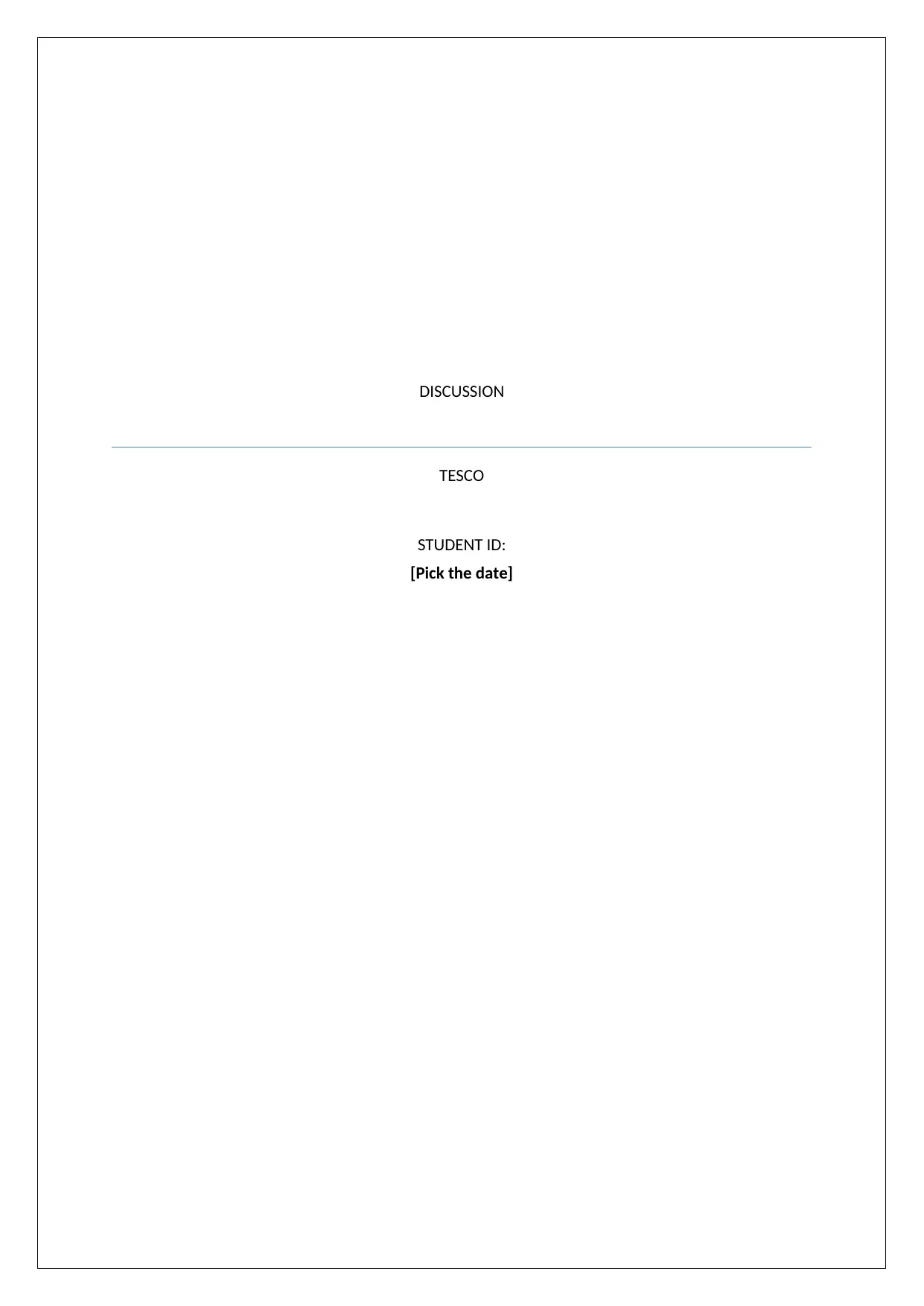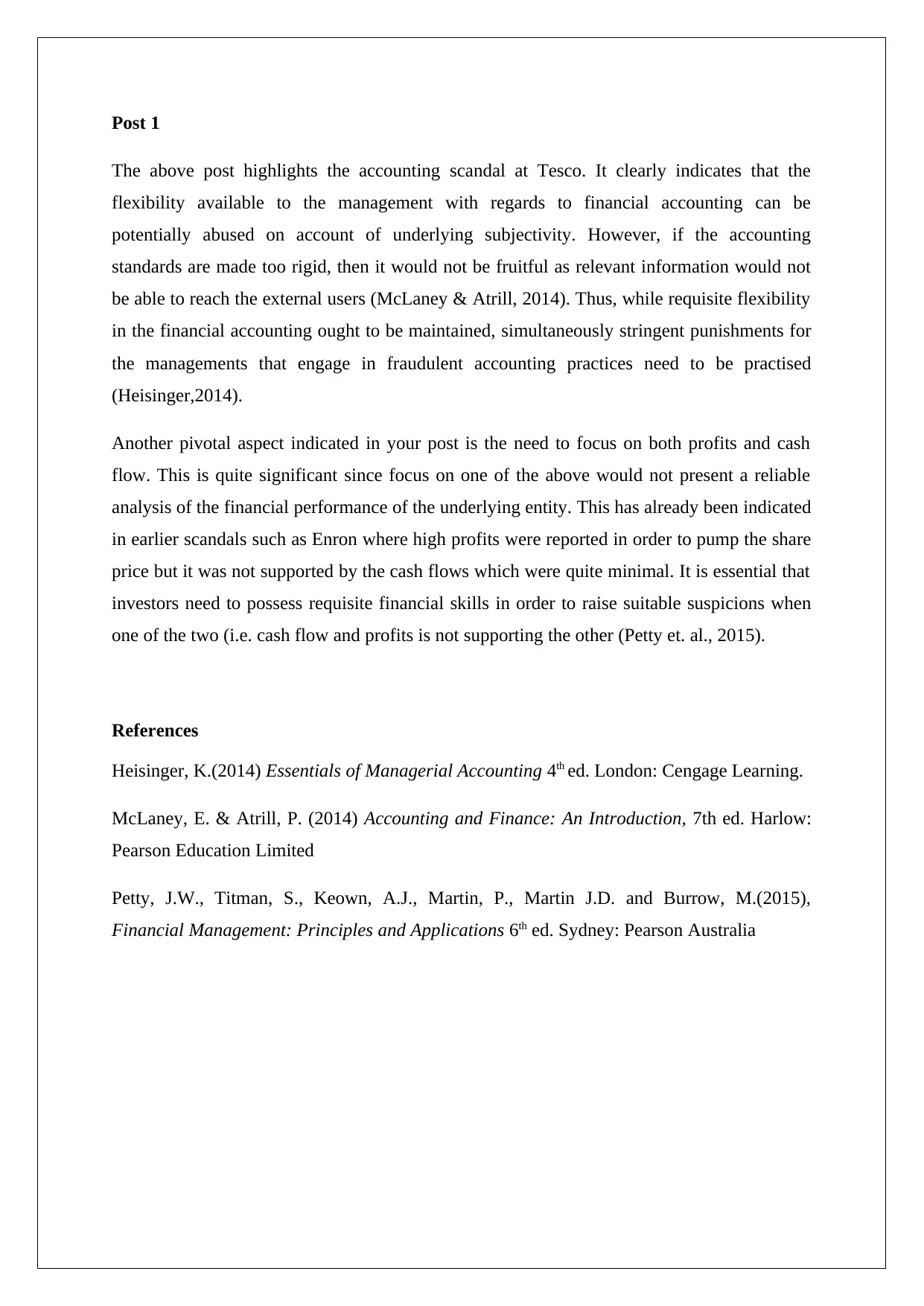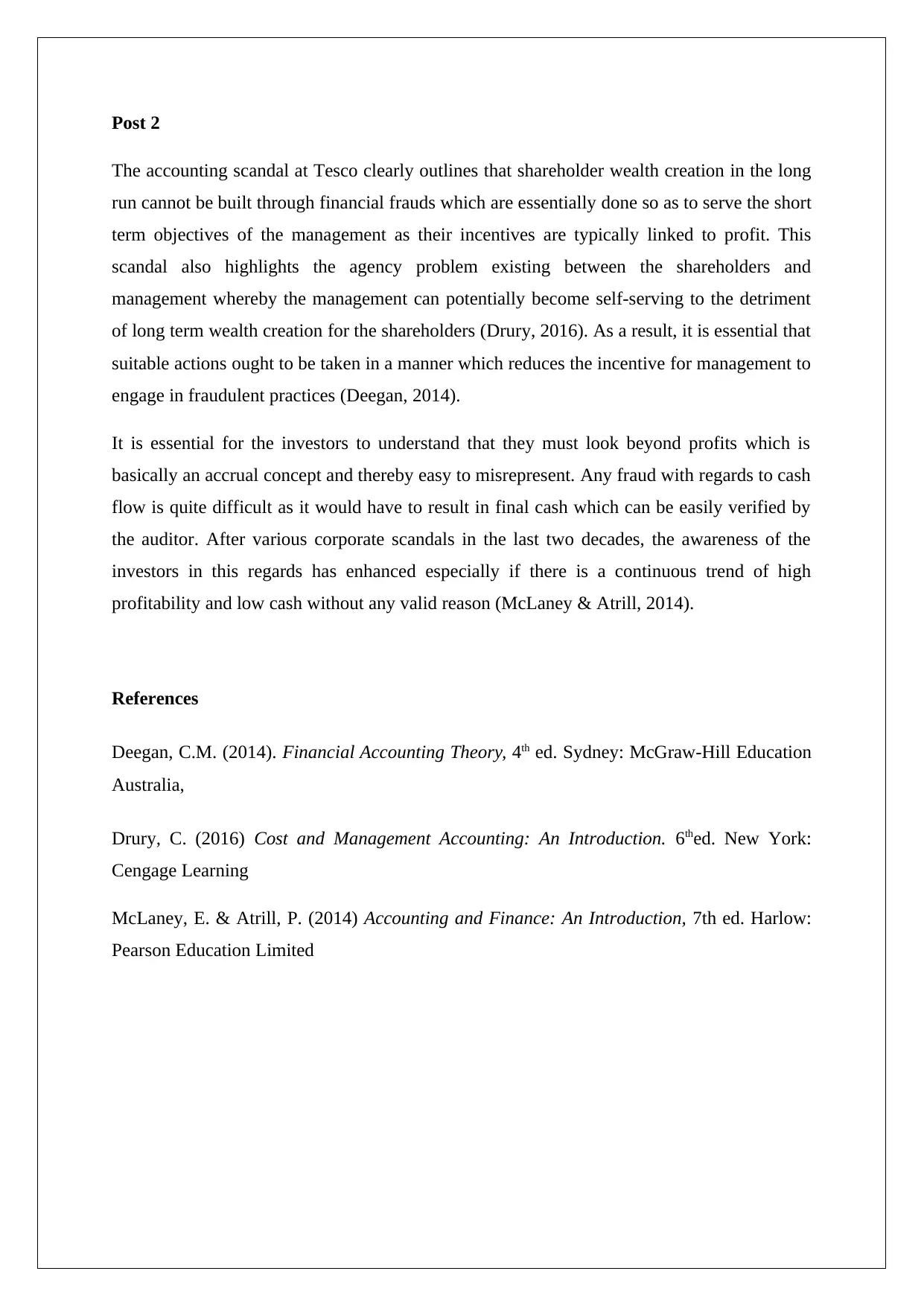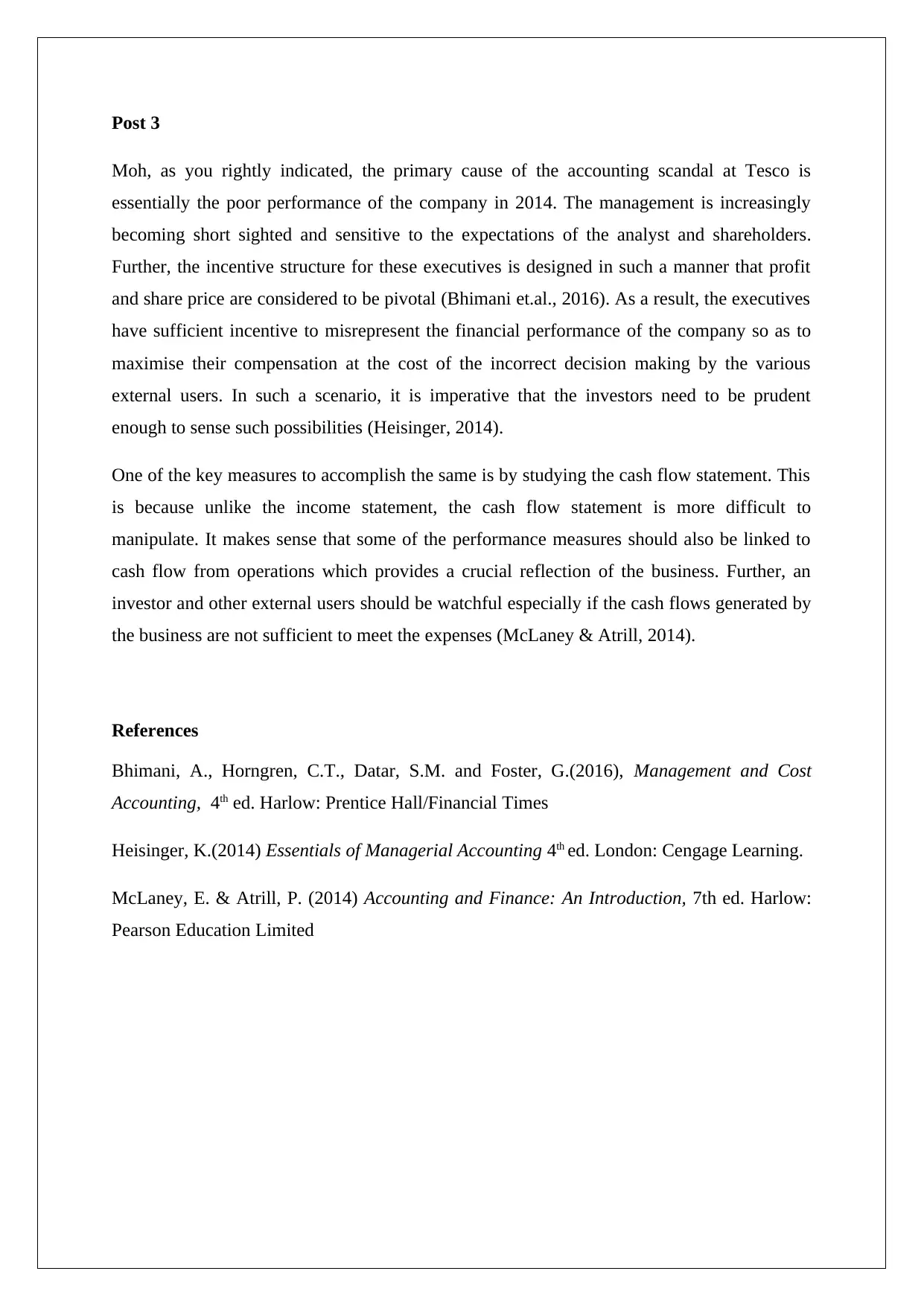Financial Accounting Discussion: The Tesco Accounting Scandal Analysis
VerifiedAdded on 2022/10/06
|4
|928
|190
Discussion Board Post
AI Summary
This discussion board post examines the accounting scandal at Tesco, focusing on the misrepresentation of financial performance and the manipulation of profits. The posts analyze the role of subjectivity in accounting, the importance of both profits and cash flow, and the agency problem between shareholders and management. The contributors discuss the incentives that led to the fraud, the impact on investors, and the need for prudent financial skills to identify potential issues. The discussion references the Tesco case and highlights the significance of cash flow statements, the dangers of short-term goals, and the importance of long-term shareholder wealth creation. The discussion also considers the role of incentives, performance measures, and the need for investors to be vigilant in their analysis of financial statements, drawing on the provided references from accounting and finance texts.
1 out of 4









![[object Object]](/_next/static/media/star-bottom.7253800d.svg)